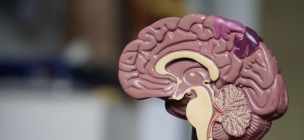Brain Injuries from Car Accidents and Personal Injury Claims
Oct 25, 2024 10:50
By Michael Connolly
Unfortunately, car accidents aren’t an uncommon occurrence in daily life. And, in many of these car accidents, one or more individuals will likely suffer personal injury.
Brain injuries from car accidents are a particularly challenging injury. Unlike, say, a broken leg, brain injuries can be invisible to outsiders and unpredictable for victims. No two brain injuries are alike, and different individuals can experience wildly different symptoms after suffering a brain injury.
Below, we’ll discuss how brain injuries from car accidents are treated in personal injury claims and how they can differ from other types of common personal injuries.
What is a Brain Injury?
Brain injuries from car accidents often result from head trauma, such as a blow to the head or whiplash. These injuries are classified as "traumatic brain injuries" (TBIs), but their severity can differ significantly.
For instance, many are familiar with concussions, which are also known as "mild traumatic brain injuries" (mTBIs). Although concussions may not show up on imaging tests like MRIs or CT scans, they still cause symptoms like headaches, confusion, and loss of coordination. Fortunately, with proper treatment, most people recover fully from concussions.
More severe traumatic brain injuries, however, can take much longer to heal and may result in permanent damage. Some individuals may never fully recover from a serious TBI.
It's important to note that even if a brain injury seems mild, it doesn't prevent car accident victims from seeking compensation through a personal injury claim. If you're concerned about any injuries you've sustained in a car accident, consulting an experienced personal injury lawyer can help clarify your options.
Read more on brain injury here: https://braininjurycanada.ca/en/caregiver/about-brain-injury/concussion/
How Do Medical Professionals Diagnose Brain Injuries from Car Accidents?
Brain injuries from car accidents can be difficult to diagnose after the fact – that’s why, regardless of how you feel following a car accident, it’s critical to see a medical professional as soon as possible to confirm the state of your injuries.
Typically, if you receive immediate or near-immediate treatment following a car accident, a medical professional will conduct a Glasgow Coma Scale, which helps assess the initial severity of a possible brain injury by checking your ability to move and follow directions.
Suspected brain injuries may also be investigated either immediately following an accident or at a later time through imaging, such as an MRI or a CT scan. As noted earlier, however, not all brain injuries are visible through medical imaging.
Finally, medical professionals may be able to diagnose a brain injury based on circumstances and symptoms. For example, if a patient was involved in a car accident and hit their head and later reports difficulty concentrating and frequent headaches, a medical professional may diagnose a brain injury on that basis.
But what about treatment? Treatment for brain injuries from car accidents varies depending on the severity of the injury. For example, with milder concussions, a victim may recommend resting at home and monitoring for any changes in symptoms. On the other hand, severe traumatic brain injuries could require anything from lengthy rehabilitation work to surgery.
How Do I Prove I Suffered a Brain Injury from a Car Accident?
Proving a brain injury after a car accident can be as challenging as proving a mental illness. Both types of injuries are “invisible,” meaning they may not appear on traditional imaging tests or other diagnostic tools. However, just because these injuries aren’t easily detectable doesn’t mean they’re not real or that you aren’t entitled to compensation for your suffering and losses.
Medical Records
Your medical records can be key evidence in demonstrating the existence and impact of your brain injury. They reflect the symptoms you reported during each visit, your doctor’s objective assessments, and their treatment recommendations. Over time, these records will show how your condition has changed, whether it has improved or worsened.
It’s important to remember that after an accident, your priority should be seeking treatment and following your healthcare provider’s advice. Not only does this improve your chances of recovery, but it also strengthens your personal injury claim by demonstrating to the court that you’ve been diligent in following medical recommendations, boosting your credibility.
Medical Experts
In addition to your treating physicians, expert medical opinions may be necessary to further support your brain injury claim. These experts, often hired during the litigation process, can either examine you or review your medical records to offer a professional analysis of the injury and its impact.
Witness Testimony
Testimony from witnesses can also be valuable in proving a brain injury occurred as a result of the accident. Eyewitnesses may be able to describe the accident itself, such as whether you hit your head, or how you appeared immediately after the incident.
In addition, you, along with family members, friends, coworkers, or other close contacts, can provide testimony about changes in your behavior, abilities, or mental state after the accident. This personal testimony, combined with medical evidence, can help paint a fuller picture of the nature and severity of your brain injury.
The value of a brain injury case varies wildly based on the nature of the plaintiff’s injuries (including those beyond brain injuries from car accidents) and the impact of the accident on their life. It’s, therefore, difficult for a personal injury lawyer to estimate how much a brain injury case is worth without having reviewed all available evidence. For help investigating how much your brain injury case might be worth, speak with an experienced personal injury lawyer today.







































































